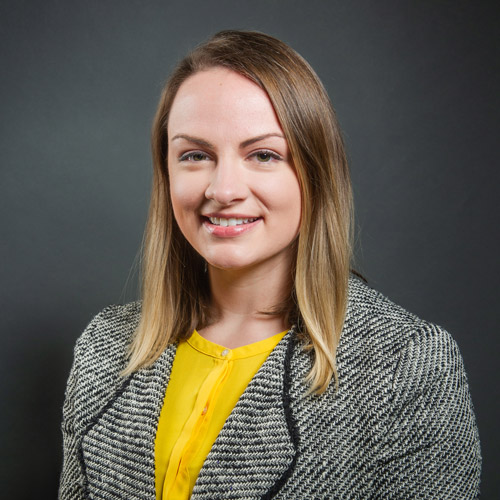Boston University Weekly COVID-19 Report: January 20 to 26
BU’s stay-in-place advisory stands, as COVID-19 numbers spike—“We really need people to buckle down, now”
Boston University publishes its COVID-19 testing data on a public-facing dashboard. Gloria Waters, BU vice president and associate provost for research, and Judy Platt, director of BU Student Health Services, provide a weekly update on the overall health of the BU community.
With the first week of spring semester classes underway this past Monday, Boston University’s coronavirus surveillance program is already detecting a significantly higher number of COVID-19 cases than last week within its residential and off-campus student community. “We have a lot of cases right now—and they seem to be coming from everywhere,” Judy Platt says. Between January 20 and 26, 105 students and 17 faculty and staff have tested positive for coronavirus.
“The numbers we are seeing are concerning,” Gloria Waters says. “It is understandable that students are glad to be back on campus and want to mingle with their friends, however, it is really important that they resist the temptation to do that since it could jeopardize our ability to keep the campus safe.”
Through extensive contact tracing efforts, Platt’s team has learned of back-to-school gatherings where households mixed, students taking weekend trips with friends, dinner parties, and other social events that all fly in the face of recommended protocols to control the spread of the coronavirus. “It can take a week to 10 days [after an exposure] for the impact of a gathering to appear in terms of individuals developing symptoms or receiving a positive test result,” Platt says.
BU’s contact tracing team is typically able to get in touch with close contacts of someone infected with COVID-19 within a matter of hours of a test result coming back positive, which Platt says is helping them to get exposed folks into quarantine rapidly.
But she says that students testing positive, when reached by those contact tracers, are identifying many more recent close contacts than was the norm for positive cases during last semester’s move-in period. While she is pleased that students are being honest about who they’ve been around—which is crucial to limiting the spread of the virus—Platt says it does seem to suggest that in general, people are suffering from pandemic fatigue and beginning to break down in terms of following health protocols. “We really need people to buckle down, now, and minimize their interactions with others,” she says.
The higher caseload is not unexpected given that the level of community transmission in Boston, the state of Massachusetts, and states around the country are much higher than they were at the beginning of the fall semester. The higher numbers of positive tests “are not something that is unique to BU,” Platt says.
To combat the spread of the virus during the reentry period of students, faculty, and staff arriving back at campus, BU still has a stay-in-place advisory issued for all returning members of its community, which Platt says is intended for everyone to follow. This stay-in-place period must be observed within a student’s residence until they have received three consecutive negative test results in one of the BU testing facilities. They are allowed to leave their residence only for meals and medical or testing appointments.
“Even if you’ve already tested positive and recovered in the last 90 days, even if you’ve been vaccinated, we need you to adhere to the protocols—we need solidarity,” Platt says.
That means wearing a mask as much as possible (even in your own home), frequently washing your hands, and adding an extra test into your regular weekly cadence of COVID-19 screening through BU. For undergraduates living on or off campus that are approved to attend class or visit campus for any reason, that means scheduling three tests per week. For graduate students, faculty, and staff who are attending in-person classes or traveling to campus for work or research, that means scheduling two tests per week.
“To date, we have not seen any community spread in labs—to ensure that we do not, it is important for researchers to double down on the protocols that were put in place to de-densify the labs,” Waters says, “and that they are very conscientious about [wearing masks] as well as performing and documenting the hygiene practices that are part of their protocols.”
“If this positive trajectory continues, there’s a number of different measures we can take to further reduce transmission,” Platt says. “But it could pose risks for us to stay open and offer the residential campus experience in the way that we want to—in the way that we were able to do this past fall—if the entire community does not work towards collectively reducing transmission by changing our behaviors.”
Gloria Waters has spearheaded teams of BU scientists in their development and deployment of a campus-wide COVID-19 testing program and mathematical modeling of community behavior. Judy Platt, chair of BU’s Medical Advisory Group, oversees clinical management and isolation of students and employees who test positive for coronavirus, and helps manage BU’s contact tracing efforts. They are co-chairs of BU’s Vaccine Preparedness Group, which is overseeing the distribution of COVID-19 vaccines allocated to BU by the Massachusetts Department of Public Health.

Comments & Discussion
Boston University moderates comments to facilitate an informed, substantive, civil conversation. Abusive, profane, self-promotional, misleading, incoherent or off-topic comments will be rejected. Moderators are staffed during regular business hours (EST) and can only accept comments written in English. Statistics or facts must include a citation or a link to the citation.